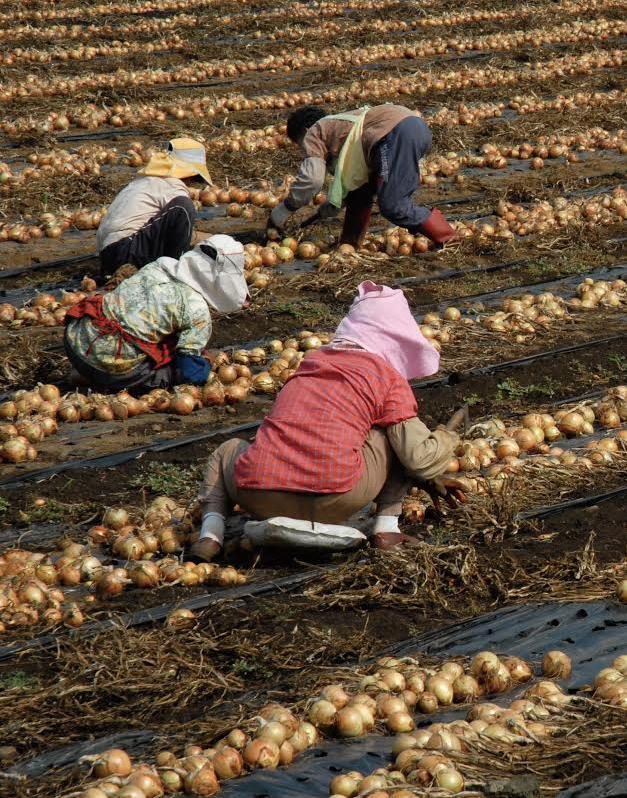| |
 |
|
| ▲ Photo by Brenda Paik Sunoo, author of "Moon Tides" Jeju Grannies of the Sea" (2012). |
The following article is excerpted from Dr. Hilty's recent presentation at UNITAR Cifal-Jeju.
This is Part II. For Part I, see here.
A case study of one such mutual aid society or "indigenous social enterprise" can be seen in Jeju Island itself. This island society traditionally held characteristics common among small islands globally, including both independence from outside influence as well as interdependence among its native residents, the very definition of 'mutual aid'.
Labor was traditionally shared, as evidenced in agricultural and marine practices even now; micro-financing, collective economics, and other financial support were maintained within each village structure, economic strategies which are swiftly gaining support in today's global community; and societies for a wide variety of common purposes were formed, many of which remain.
One of the most powerful examples of an indigenous social enterprise'can be found in the community and practices of Jeju's famed "haenyeo" or free-diving women. Far from a quaint, old-fashioned, or so-called "3D" (dirty, dangerous, demeaning) profession of manual labor and minimal education, all of which may engender a certain amusement or even disdain among outsiders, the culture of these divers is a time-honored, highly structured and functional one in which traditional underpinnings have been preserved and the concept of social enterprise embodied.
The free-divers of Jeju have a vibrant and powerful history. Along with the fishers, the divers in each village maintain "eocheongye" or economic collectives. With its complex structure complete with clearly delineated rules and shared profits, this model of collective economics -- an increasingly popular concept in the wake of the ongoing global financial crisis which began in 2008 -- is worthy of emulation.
Until the 1970s, when it began to be replaced by tourism, the profession of commercial free-diving was one of the primary drivers of this island economy. These free-divers have also served as community leaders and social activists. Notably, divers would begin their work in early adolescence and typically continue well into old age, thus maintaining both social engagement and productivity throughout the majority of their lives.
Even more significant in regard to social enterprise is the free-divers' systematization of social responsibility. The divers' group of each coastal village delineates regions within the diving territory for specific purposes, the profits from which have been used to build schools ("hakkyo badang" or "school sea"), assist elderly former divers ("halmang badang" or "grandmother sea"), and other measures of social welfare.
Additionally, the divers set aside one day each month in which they dive to gather garbage rather than marine product, thus "cleaning the sea" in order to contribute to the well-being of the marine environment. Each collective also maintains the marine life through re-seeding programs, and utilizes methods meant to control the amount of product harvested, all both economically and ecologically sustainable practices for the benefit of the community.
The free-diving profession is set against a backdrop of a highly complex animistic belief system, by its very nature ecologically sound and community-oriented. This magico-religious system's construct of manifest deity bestows upon its devotees a sense of awe and worship of nature, and of living in harmony with same. The seasonal rites of this practice thus produce a deeply ingrained appreciation of a balanced ecosystem, as well as a powerful social cohesion as village life traditionally centers upon the agricultural rhythms acknowledged by such rituals.
Beyond the variety of tangible contributions identified, these intangible benefits, while less quantifiable, represent the most long-term, sustainable contribution of all.
Other such measures of mutual aid, including micro-financing and reciprocal contribution, can be witnessed on Jeju in present-day practices such as the monetary donations provided at weddings, births, graduations, funerals, opening of new businesses, major illness, and more, and in the private money-lending schemes maintained by each village.
Thus, this island culture of Jeju, at its core, is one of social enterprise – a model of mutual aid, egalitarian labor practices, collective economics, micro-financing, and social engagement and cohesion, at the foundation of which is an eco-friendly belief system.
As we study the social enterprise structure and its value, both tangible and intangible, to Korean society, we would do well to consider deeply the example of Jeju Island.
Previous: Indigenous Social Enterprise and Jeju Island
--
Dr. Hilty is a cultural health psychologist from New York, currently residing on Jeju Island. |




















